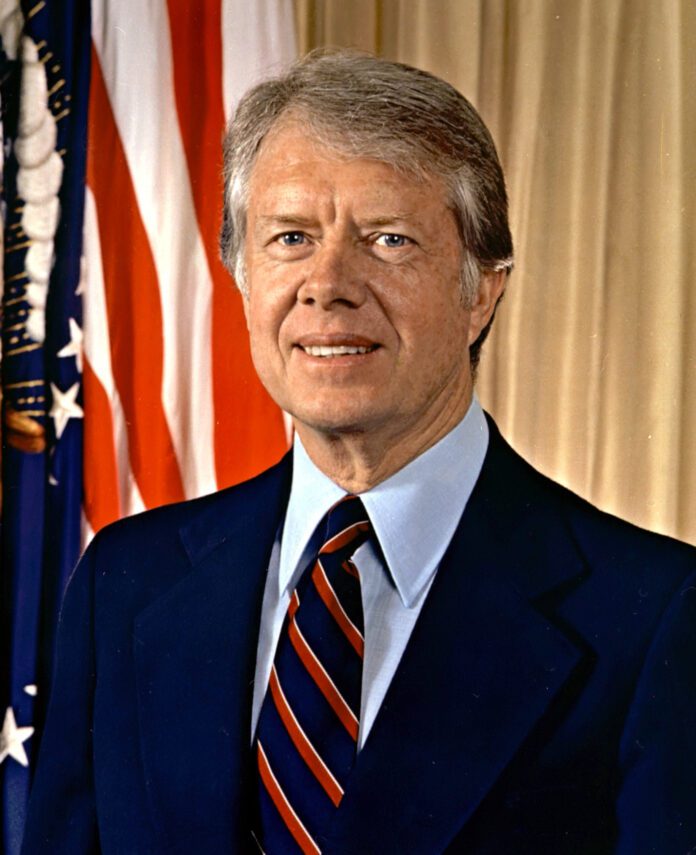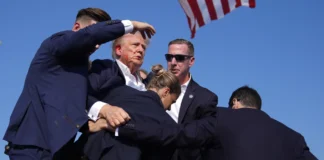Jimmy Carter, the 39th president of the United States and a Nobel Peace Prize laureate, passed away peacefully on Sunday, December 29, at his home in Plains, Georgia.
Surrounded by his family, Carter’s death marks the end of an extraordinary century-long life dedicated to public service, humanitarian work, and the pursuit of peace. At 100, he was the longest-living U.S. president in history.
President Carter is survived by his children, Jack, Chip, Jeff, and Amy, as well as 11 grandchildren and 14 great-grandchildren. He was preceded in death by his beloved wife, Rosalynn, his partner of 77 years, and one grandchild.
“My father was a hero, not only to me but to everyone who believes in peace, human rights, and unselfish love,” said his son, Chip Carter. “The world is our family because of the way he brought people together, and we thank you for honoring his memory by continuing to live these shared beliefs.”
Public observances are planned in Atlanta and Washington, D.C., followed by a private interment in Plains, Georgia. Details of the state funeral, including motorcade routes and public events, are expected to be released soon.
A life of service and achievement
Born in Plains, Georgia, in 1924, Jimmy Carter rose from humble beginnings as a peanut farmer to become a global advocate for peace and human rights. His presidency, from 1977 to 1981, was marked by significant accomplishments, including brokering the Camp David Accords between Egypt and Israel and establishing the Department of Energy and the Department of Education. Despite facing economic challenges and the Iran hostage crisis, Carter’s administration emphasized honesty and integrity in government.
After leaving the White House, Carter embarked on a remarkable post-presidential career that arguably overshadowed his time in office. In 1982, he founded the Carter Center, an organization dedicated to advancing human rights, eradicating diseases like guinea worm, and monitoring elections in over 100 countries. His efforts earned him the Nobel Peace Prize in 2002 for “his decades of untiring effort to find peaceful solutions to international conflicts, to advance democracy and human rights, and to promote economic and social development.”
Personal beliefs and legacy
Throughout his life, Carter was guided by his Christian faith, often referring to himself as a “born-again Baptist.” His belief in equality and social justice informed much of his work, from advocating for fair housing as governor of Georgia to his dedication to Habitat for Humanity, an organization he supported through hands-on volunteer work well into his 90s.
Even in his final years, Carter remained deeply engaged in politics and democracy. The former president often joked that he wanted to live long enough to vote for Kamala Harris to become president. He fulfilled that wish in the November election.
Beyond his political and humanitarian work, Carter was an accomplished author, penning numerous books on topics ranging from his presidency to his faith and love for his wife, Rosalynn.
An enduring example
Jimmy Carter’s legacy transcends partisan politics. He will be remembered as a leader who dedicated his life to serving others, whether in the Oval Office, on the international stage, or with a hammer in hand, building homes for those in need.
As the world mourns his loss, tributes have poured in from leaders and citizens alike, celebrating a man whose impact reached far beyond the borders of his small Georgia hometown.
“With his compassion and moral clarity, he worked to eradicate disease, forge peace, advance civil rights and human rights, promote free and fair elections, house the homeless, and always advocate for the least among us. He saved, lifted, and changed the lives of people all across the globe,” President Joe Biden said in a statement.















